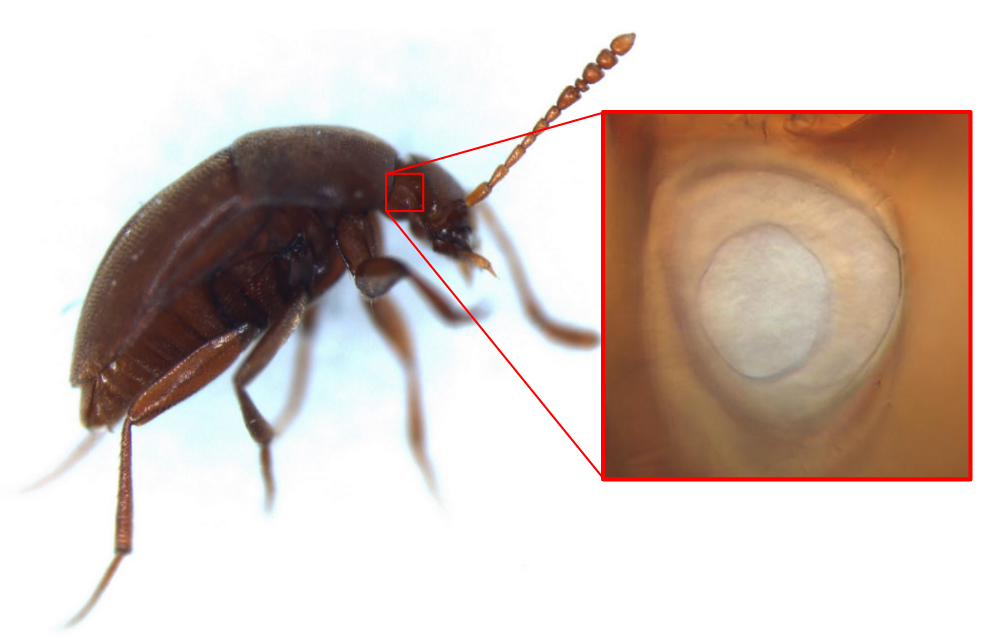Markus Friedrich knows a thing or two about adaptation — and cave beetles.
Friedrich, a professor in the Department of Biological Sciences at Wayne State University, has been studying a specific species of cave beetle (Ptomaphagus hirtus) for nearly 10 years and in that time the project has evolved significantly.
When he began the research project in 2007, Friedrich and his team were looking for a cave-dwelling beetle species to study as a model for vision loss. This particular beetle — which inhabits the vast subterranean world of Mammoth Cave National Park in Kentucky — is a highly cave-adapted, flightless species that has long been considered blind.
 Friedrich and his team, however, discovered the beetle possesses a small, but functional, visual system. They worked with the Human Genome Sequencing Center at the Baylor College of Medicine to sequence all of the genes expressed in the head of the tiny insect.
Friedrich and his team, however, discovered the beetle possesses a small, but functional, visual system. They worked with the Human Genome Sequencing Center at the Baylor College of Medicine to sequence all of the genes expressed in the head of the tiny insect.
“The output was just stunning,” said Friedrich. “We not only found one gene that specifically confirmed vision — we found more than 20.”
With this newfound discovery, which was published in The Journal of Experimental Biology in 2011, Friedrich and his team were posed with new questions about the purpose of the beetle’s unique vision system.
The team — which works in a cave lab simulated to mirror the beetle’s natural habit — then turned its attention toward understanding how this vision system functions and informs in the cave environment. The group has characterized where the genes are expressed in the beetle’s head and has detected the presence and organization of photoreceptors, according to Friedrich.
“This project has made us all ecologists, behavioral biologists, vision researchers and more,” he said. “We’ll continue to move forward and grow with this project. These beetles can tell us a lot about cave species and adaptation.”
Friedrich’s team recently conducted a successful crowdfunding campaign, winning a grant challenge award for the highest number of backers. With the support of over 100 backers, the team is now able to purchase a low-temperature incubator, which will allow them to study the cave beetle’s temperature tolerance limits and how they impact the species’ dispersal in the cave environment.
For more information about the project, visit Friedrich’s lab site. To learn more about the various research projects being conducted at Wayne State University, visit wayne.edu/research.
